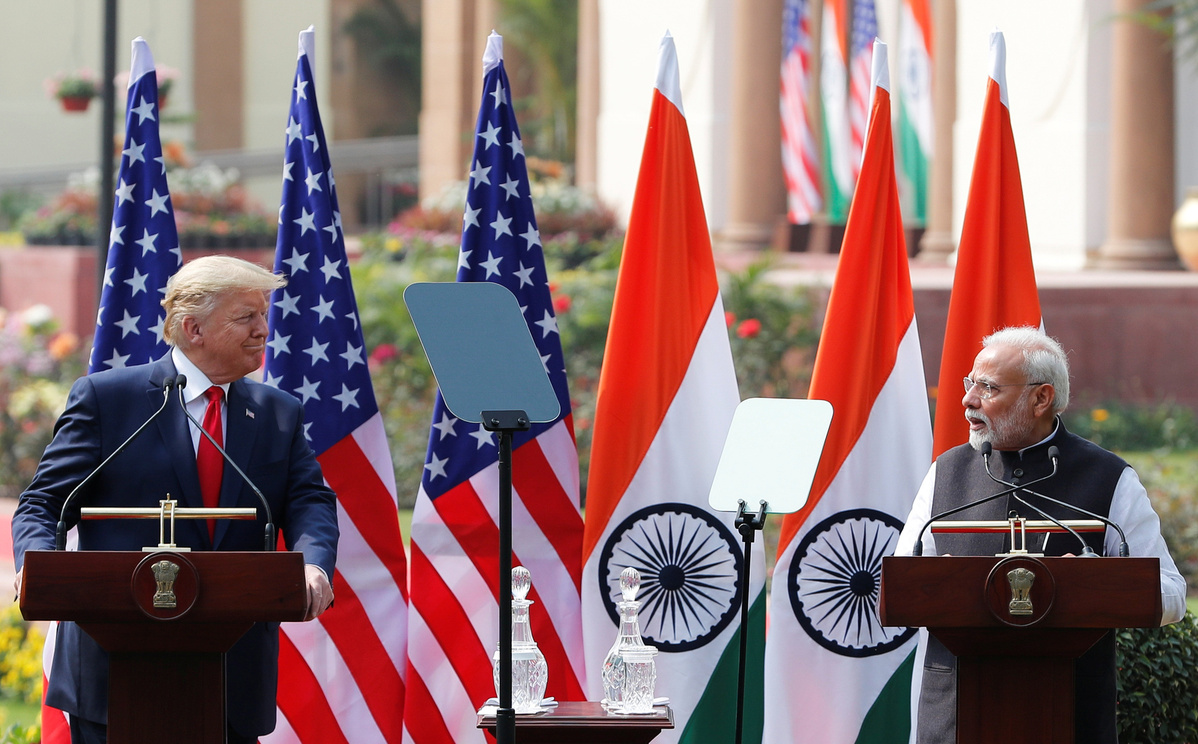India trip part of campaign for reelection: China Daily editorial
chinadaily.com.cn | Updated: 2020-02-25 19:45

The US president was naturally effusive in response to the "stunning display of Indian culture and kindness" that was laid on to welcome him on his visit to the country.
With an estimated 110,000 people packing a stadium in Ahmedabad to cheer his arrival as an honored guest, reportedly the biggest public reception given to any foreign leader in years, it was no wonder he was delighted at the way his hosts were feting him as it burnished his presidential credentials ahead of this year's election.
But there are tough negotiations going on behind the pomp and pageantry as both sides hope to reach agreement on some kind of trade deal.
Considering Washington's recent designation of New Delhi as a major defense partner, and the United States' unrivaled status as the world's top arms seller, that India has agreed to buy $3 billion in US military equipment comes as no surprise.
Yet the trade deal Washington and New Delhi are looking to secure has been proving more elusive, although perhaps the US leader's visit has at least helped to set a constructive tone for the negotiations going forward.
Not least because New Delhi has been able to benefit from Washington assigning it greater geopolitical significance. For there is no denying that concerns surrounding China, spoken and unspoken, geopolitical and economic and beyond, are in some ways and to some extent driving India and the US closer together.
This may indeed be, as some speculate, the most important foreign policy visit the US president has paid, since it has primarily been driven by Washington's desire to enlist New Delhi as a counterweight against Beijing. There is a high probability that the Washington-proposed Indo-Pacific strategy will appear to gain further traction through this high-profile chin-wag.
But while India may want much of what the US has to offer, from military equipment to supplies for cutting-edge technology, as well as favorable trading status and respect for domestic policies, it remains wary of striking a bargain that will see it employed as a chessman on the US' geopolitical chessboard.
While India and China continue to differ on some regional concerns, with New Delhi harboring suspicions about Beijing's regional and global development initiatives, the other side of the coin is both are carefully navigating those divergences so as to not turn the other into a hostile neighbor. The short standoff at Doklam in 2017 raised the specter of the border war China and India fought a few decades before, and with neither side wanting a repeat of that, they are making every effort to get along.
Given that, why would New Delhi forsake its time-honored, broadly respected non-aligned policy to assume the degrading role of being someone else's pawn?
























